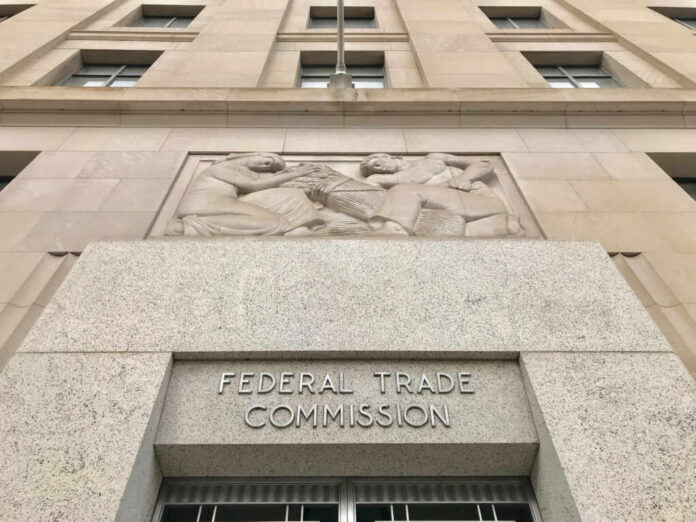
In a move that pushes the envelope in antitrust law, the Federal Trade Commission (FTC), flanked by 17 state attorneys general, has sued retail giant Amazon, alleging illegal monopoly practices. The complaint filed in the U.S. District Court for the Western District of Washington on Tuesday asserts that Amazon is operating unchallenged in two markets, manipulating this dominant stance to inflate prices, degrade quality and quell innovation, according to FTC Chair Lina Khan.
This groundbreaking lawsuit arises amid an environment of escalating scrutiny over Big Tech companies, signaling a shift in focus for regulatory bodies. It reveals deepening concerns about market fairness and the operational mechanisms of technological behemoths. It seems that regulatory rigor applied to Amazon is symptomatic of broader governmental unease with the tech industry’s escalating omnipresence and influence.
Alleging it illegally blocks competition to protect its Monopoly in online #retail🛍️
Hurting a 100M+ shoppers by ⬆️ prices
Forcing sellers to pay 1 out of every $2 it makes back to Amazon
If FTC wins prices will go 🆙on fewer items sold$Amzn sells off ⬇️4% pic.twitter.com/0RF3xADeXG
— Susan Li (@SusanLiTV) September 26, 2023
Addressing the lawsuit, Amazon swiftly refuted the allegations, stating that the FTC has strayed significantly from its foundational mission of protecting consumers and competition. David Zapolsky, Amazon’s Senior Vice President, argued, “If the FTC gets its way, the result would be fewer products to choose from, higher prices, slower deliveries for consumers, and reduced options for small businesses — the opposite of what antitrust law is designed to do.”
But the inquiry begs deeper reflection: does Amazon’s multifaceted dominance infringe upon the tenets of market democracy and consumer choice? The company, amassing $134 billion in sales during its most recent quarter, exercises widespread control across industries, including cloud computing, entertainment, online pharmaceuticals and more. This lawsuit potentially unveils the meticulous surveillance networks utilized by Amazon to ensure prices across the web aren’t undercutting its listed products, raising questions on market manipulation and the fairness of competition.
Interestingly, the lawsuit asserts that although Amazon’s competitive prices are a boon to consumers, its restrictive seller policies could inadvertently harm them. It claims Amazon imposes a kind of “price floor” by forcing sellers to inflate product prices on other sites, a tactic seen as coercive and harmful to market fluidity. If substantiated, these practices would reveal a worrying paradigm where the e-commerce titan controls market prices and potentially restricts consumer choice.
Lina Khan, who has been notably vocal about the unchecked power of tech giants, is pioneering a novel approach to gauging harm to competitors in this lawsuit. Khan and other state attorneys general claim that Amazon’s alleged monopolistic practices degrade consumer choice and impede sellers from offering goods at lower prices elsewhere online.
However, is this regulatory zeal infringing on technological innovation and market dynamics or a necessary intervention to ensure equitable market structures? Some critics of Khan’s approach argue that her strategies are overly aggressive and indicate a leadership disaster, calling her a “bully.” These criticisms raise pertinent questions about the boundary between regulatory oversight and market freedom, sparking debates on the fundamental principles governing market operations.
Whether the case comes to be seen as a warranted intervention in the name of market fairness or an undue obstruction of corporate innovation remains to be seen. Still, it undoubtedly sets a precedent for the intersection of law, technology and market dynamics in the 21st century.



























